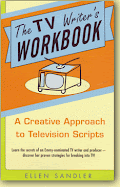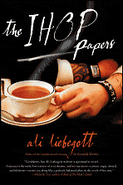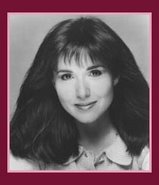


 Welcome to “Up Close and Personal.” For every interview I will be introducing a literary personality discussing his views and insights, as well as upcoming literary events around the world.
Welcome to “Up Close and Personal.” For every interview I will be introducing a literary personality discussing his views and insights, as well as upcoming literary events around the world.Today’s interview is with Mr. Ron McLarty. He was discovered as a writer by Stephen King, who listened to his unpublished novel which Mr. McLarty had recorded as an audio book. Stephen King declared The Memory of Running” as The Best Book You Can’t Read in 2003.
His book, “The Memory of Running” is about a 43 year old real nice guy, 279-pound, hard-drinking, womanless, friendless, self-professed loser Smithy Ide, who works in a dead-end job as a quality control inspector at a G.I. Joe toy factory action-figure in Rhode Island, putting arms and legs on an action hero.
Mr. McLarty is also a professional character actor, he’s had recurring roles on the following T.V shows: Sex and the City with Sarah Jessica Parker, The Practice with Dylan McDermott , Laura Flynn Boyle and James Spader, Spencer: For Hire a mystery suspense series based on Robert Parker’s novel with the late Robert Urich and Law & Order SVU with Mariska Hargitay, Christopher Malone and Ice-T
He has appeared in films and on the stage, where he has directed many of his own plays. Mr. McLarty has written all of his novels and plays by longhand.
E.I. Tell us about your book ‘Art in America ’ and how did you come up with the title and idea?
R.M. ART IN AMERICA was written as a homage to the healing power of theatre. I chose community theatre in this case because there is a sense of mission and commitment non-professionals bring to the table. I can't say for certain how the title seeped into my head except without Art, even silly art, we're just going through the motions of life.
E.I. How much of "Steven Kearney" , "Ticky Lettgo" and "Red Fields" life is planned out in your head? How do you know where you will go next with any of your characters?
R.M. When I first began to write, I plotted out everything. No guesswork. I simply followed my outline. MISTAKE! It wasn't until I trusted my characters to speak and act for themselves, to create their own story that I found joy in writing. More often than not I'm pretty surprised where my characters lead me.
E.I. Tell us about “Traveler” and the memorable, winning cast of characters you created in the novel?
R.M. I've set novels in my hometown of East Providence, RI before. It was wonderful growing up in a very, very diverse town. Portuguese, Italian, African-American, Irish . . . you name it. For the most part we all got along and found our places in the world. TRAVELER is a blend of the real and the imaginary.
E.I. The story of camaraderie among Cubby, Bobby, Juno and Billy in Traveler is hilarious and tragic. Are these characters base on real people?
R.M. They're a compilation of people I grew up with. I've done some book events in East Providence and every now and then someone will come up to me and say 'That guy was me, right?' (I always say yes).
E.I. What motivates you to write about men like Jono Riley in Traveler, Smithy Ide in Memory of Running and Steven Kearny in Art in America, who seem to have something missing from their lives?
R.M. For many people, perhaps for most, life is a wild journey. A search for the correct place, love, belonging. It's usually a person we seek, who will make us less afraid and take the time to listen to our hopes and fears. I didn't know that Jono or Smithy or Steven were going to find what they were looking for when I put them on the road but I was happy for them when they did.
E.I. Do you give each character the same amount of thought or attention when developing them as you do the major players in the story?
R.M. It's necessary for me to like the people in my stories . . . even the one's that common sense tells you not to. My personal experience has shown that given the benefit of the doubt, most people are a whole lot better than first impressions. So yes, even the folks passing through get plopped under the microscope where special attention gets paid.
E.I. Did you go to NY 30 or 40 years ago to become a writer but ended up becoming a character actor? Please tell your fans about the origins of your original goal to be a writer? Had you wanted to write as a child and how you ended up doing acting? Do you have formal training in either discipline?
R.M. I got discharged from the Army in 1971. I had my first novel completed and figured it might take a month or so before I was paid millions for world wide publication so I auditioned for a play, MOONCHILDREN, at Arena Stage in Washington, DC. That play went to Broadway (for three minutes) and that led to commercials, more plays, television series and films. It did not however lead to publication for that I had to wait 31 more years. But I always wrote for the pleasure of it which is a must for the writer. There's never a guarantee of anything beyond the blank page. I practiced writing and acting sort of informally. They're very similar in that the actor's technique of storing physical and vocal observations of the world to be brought up and used as character studies is invaluable to the writer as well when he or she is fleshing out the lives lived on the page.
E.I. When you sat down to write a new novel, do you always have any idea what the subject would be? Was your mind always totally blank until a character whispered in your ear..... "Here's my story. Write it down." Or do you have no outline, no road map and you where just simply along for the ride?
R.M. The key is to trust that the characters won't let you down. That they will have lives and insist on living them. And they do.
E.I. What challenges or obstacle did you encounter while writing and creating Smithy Ide in “Memory of Running”? How did you overcome these challenges?
R.M. I like to think I learned to write finally, with THE MEMORY OF RUNNING. I had previously insisted on manipulating my stories and the people who inhabit them to arrive at some pre-destined conclusion. But when I was forty my folks had a terrible one car accident that would eventually claim their lives. I took a hotel room near the hospital they were in and at night to distract myself from this awful situation, I began a long poem about an overweight guy pedaling across America. After my folks were gone I turned the poem into a play and then into a novel. When I say that Smithy really wrote his own story with me adding commas and periods--I mean it.
E.I. With "Memory of Running", "Traveler" and now “Art in America” under your belt how have you evolved as a writer?
R.M. I'm evolving with my characters. I never write for the sake of writing. Some days my characters want to chill, tell me nothing. I'm good at waiting now because I know, sooner or later, they'll say 'let's get going.'
E.I. Do you let anyone read your manuscript, before you send it to your editor?
R.M. My wife, Kate Skinner is a very great actress with the artist's insight and a prodigious reader. Her suggestions and help are invaluable.
E.I. Give us three "Good to Know" facts about you. Be creative. Tell us about your first job, the inspiration for your writing, any fun details that would enliven your page.
R.M. I'm not sure I can offer "Good to Know" facts about Ron McLarty but here's a few things that taken together may add up to something. Because of my long wait for publication I became a more or less full time actor and landed some nice parts on Broadway, television and film. I also narrated many audio books and gave voice to a lot of commercials. I didn't realize until much later that while my feelings were indeed hurt at what I thought was literary neglect--there was a silver lining to it. There wasn't room in me for hurt feelings when it came to acting roles not gotten. I never had to lug that huge sack of disappointments around that are so much a part of the acting profession. When I got published (due to an article Stephen King wrote after listening to me read MEMORY in audio), I was at an age when I could enjoy the ride and not get lost in thinking it was my due.
E.I. Mr. McLarty, Thank you for contributing to my blog. It has been a pleasure for me to get to know your work a little better. Would you like to end your interview with a writing tip or advice for young aspiring writers?
R.M. Tell YOURSELF a story--something that interests you. Diligence and hard work are important of course but so is imagination--cultivate it. And of course keep at it.
Photo of Mr. McLarty By Jerry Bauer
To learn more about Ron McLarty please visit his website at: http://www.ronmclarty.com/
To purchase his books please visit www.amazon.com/











.png)

















No comments:
Post a Comment